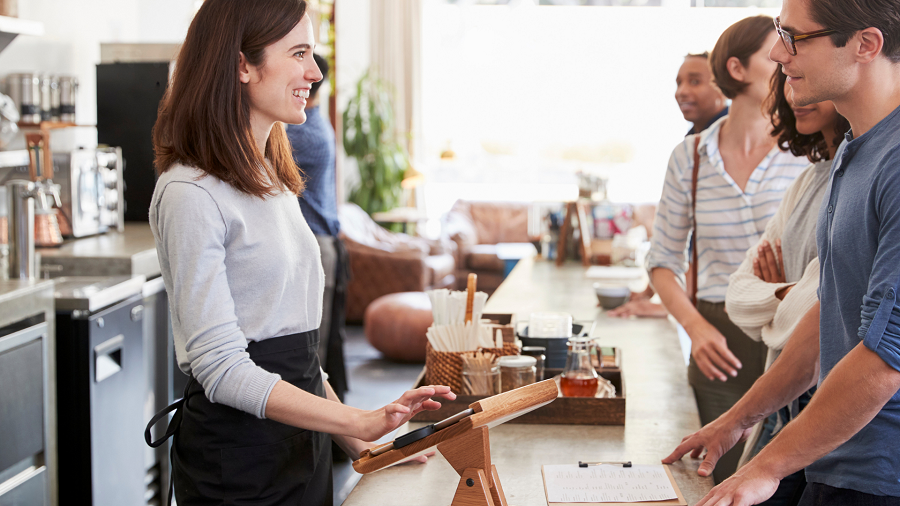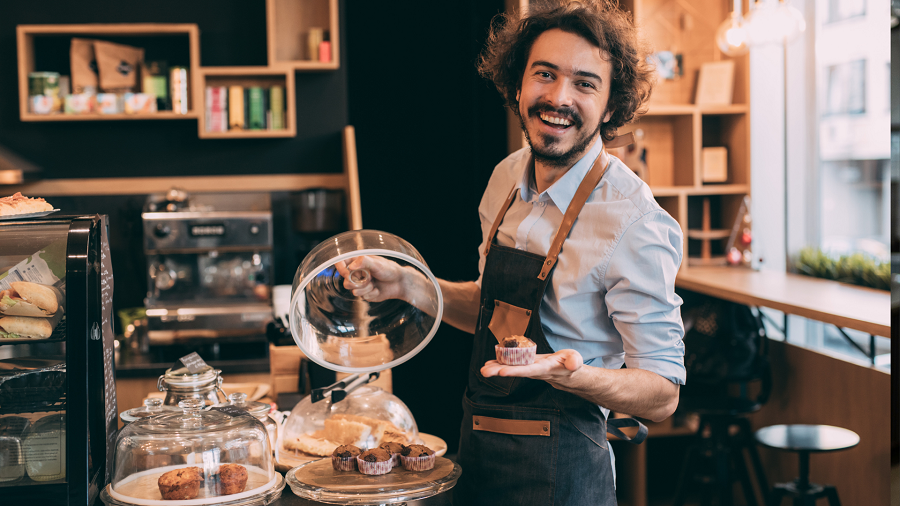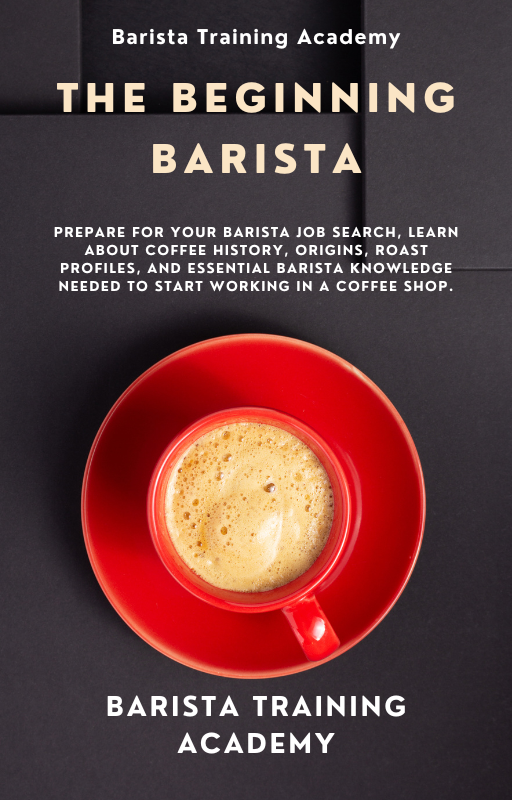What Do Baristas Do?
Imagine a world where people stopped serving coffee. Oh wait, I just can't do that!
Coffee isn't just a beverage. It's a significant part of my daily routine – and for billions of others every day. Living in a world without coffee would be the last straw!
Certainly, the people who serve coffee in countless settings and situations are essential to us. For example, in a coffee shop, we refer to people who make and serve coffee as baristas.
In this post, we want to answer the questions: what are baristas, and what do baristas do?
Further Reading: Requirements to Be a Barista

What Do Baristas Do?
Where did the term “barista” come from?
The word barista is the Italian word for bartender. When it comes to coffee settings, a barista is someone who makes coffee drinks.
The word barista was popularized by Starbucks in the late 1980s as a person who is an employee working behind the coffee bar.
Before that, coffee shop employees weren't referred to as baristas but rather waiters, waitresses, and servers. However, the term “barista'” would catch on as Third wave coffee shops caught on, and the need to have a clear identity for someone primarily serving coffee was essential.
Today, the word barista is synonymous with those employed at coffee shops.
Barista: The Definition
What is a Barista?
A barista is someone who makes and serves coffee and other coffee-based drinks. Typically a barista works in a coffee shop setting, café, restaurant, or other food and beverage establishments, such as a drive-thru coffee shop or mobile coffee truck.
However, we never like to limit where baristas can be found working! So, a barista can be found anywhere where coffee is served. We also can’t restrict what kinds of drinks baristas can make.
Besides being trained to serve espresso and everything that comes with it, baristas are expected to know how to make milkshakes, and smoothies, serve ice cream, and even make sandwiches if a coffee shop decides so.
What Does a Barista Do?
Baristas typically make coffee – espresso-based beverages like lattes, macchiatos, cappuccinos, and other drinks through an espresso machine. To do it, baristas have to operate an espresso machine of any level of difficulty, froth milk, and memorize the recipes.
The baristas are also expected to know the coffee blends they are serving. In addition, baristas also make and serve manually brewed coffee, using pour-over methods, siphoning, and other slow-brew techniques. Baristas can also be found serving alcohol-based beverages, beer, wine, and teas.
And finally, baristas can make and serve light foods, snacks, and other dishes.
The critical task of any barista is customer service. Typically, in small coffee shops, a barista is the one who interacts with customers directly: takes orders, prepares drinks, and takes payments. In larger cafes, some baristas can take orders while others brew coffee – and then exchange.
A barista is a jack of all trades because each barista's job is different and demands different skills. For example, a café that serves wines and spirits will need another skill set from a café bakery which may require a barista with some baking experience.
Our goal here at Barista Training Academy is to ensure that you are prepared for whatever you find yourself in.
Baristas will likely be required to keep a clean workstation bus, and wash dishes, do light custodial work. In addition, taking orders with a coffee shop POS system is standard and generally a big part of the job.
Yet, while a barista may do a variety of different tasks, your primary job is associated with making coffee.
What Requirements Are There To Be a Barista?
The primary task of a barista or anyone in the food and beverage industry is to keep their customers safe from foodborne illnesses. Therefore, knowledge of how to clean and maintain your coffee equipment should be a priority before making any beverages. Also, maintaining a clean workstation and knowing how to handle and prepare any food you are working with is critical.
Baristas are expected to make various drinks correctly. These may include espresso-based drinks, pour-overs, and other non-coffee drinks. Sometimes, this includes working with alcoholic beverages.
Baristas are required by law:
- To wash their hands before work and after the use of a toilet.
- Use the appropriate temperature to store milk and food.
- Be legally eligible to work in your jurisdiction.
While these requirements are essential, each coffee shop or place of employment will have its requirements for its hired baristas.
While each location may be different, many will have the exact independent requirements that must be satisfied.
For example, some coffee shops may want the following from a barista:
- Be at least 18 years old
- Have at minimum a high school education equivalent
- Must be able to lift 25 pounds (12.5 kilos)
These may not be complex requirements for many people, but it is often the minimum that many coffee shop businesses may require.
Here is an essential list of barista job functions:
- Make coffee
- espresso-based coffee
- Pour-over methods
- Utilize other brewing techniques
- Foam milk correctly
- Handle and prepare food safely
- Adhere to specific recipes
- Keep a clean workstation
- Properly maintain and clean equipment
- Training new employees
- Light custodial work
- Some cooking and food prep
The particular coffee business may require other duties.
Further Reading: How to Be a Barista Fast?

What Do Baristas Do?
How Long Does It Take To Be a Barista?
Learning about coffee can be a life-long endeavor. Yet, training to be a barista may only take several hours.
Depending on the barista training program and the student's knowledge, you may need anywhere from 3-6 hours of basic barista training.
Developing your barista skills, coffee knowledge, and expertise can take time, but getting you up and ready to serve coffee should take more the one or two days of training.
Of course, true expertise comes with time. Pouring latte art might be challenging at first. However, if you work long enough, you’ll see how easy it becomes after a 100th cup.
Do You Have to Be Certified to be a Barista?
Currently, there are no regulations and legal basis for being certified as a barista. So, for example, you don't have to register with a state agency to work as a barista like other professions (hairdresser, massage therapist, etc.)
Generally, you can get a barista certification from a private organization. The certification means that you have passed the organization's standards and curriculum and have proven a certain mastery of barista skills.
Another option is being trained as a barista to garner the knowledge to operate your coffee shop workstation effectively.
How to Be a Barista With No Experience?
Every barista or coffee expert has to start somewhere. Unfortunately, that means that today's experienced and talented baristas had no experience at one point in time.
So, how can you get a job as a barista without experience?
We recommend you start learning about coffee on your own. You don't need a job or place to get a passion for coffee. Coffee is a product that you can learn about and experiment with with relatively little money and investment. Developing a passion for coffee can help you learn about coffee origins, flavor profiles, and different brewing methods.
Read various coffee blogs, speak with coffee experts, and buy our ebook, which you can find here when you are ready. Next, you may also want to invest in online barista training. Online barista training will help you with the fundamentals of coffee drink building.
Get A Different Job in Customer Service First
If you find it hard to be employed as a barista, you can try to work as a waiter/waitress or a kitchen worker at a coffee shop or cafe. This will give you a significant advantage when sending out your barista resumes. Remember, most coffee shops employ baristas for their personality and human skills rather than for their vast experience with coffee drinks. This is because the level of a coffee shop's customer service is the primary driver of sales.
Is being a barista a good job?
Yes, there has never been a better time to be a barista. With the steady growth of coffee, you can get a job anywhere where people drink coffee.
We've previously written about the benefits of being a barista. While the potential to make an excellent hourly wage exists, other essential factors also come into play: these include job security, flexible schedules, and tip earnings.
However, no two independent coffee shops are alike. Therefore, barista requirements, functions, and earnings might differ from place to place. Our goal is to provide you with the knowledge and expertise you need to start your coffee education right so you can land the best barista job – with the highest pay and profound benefits.
